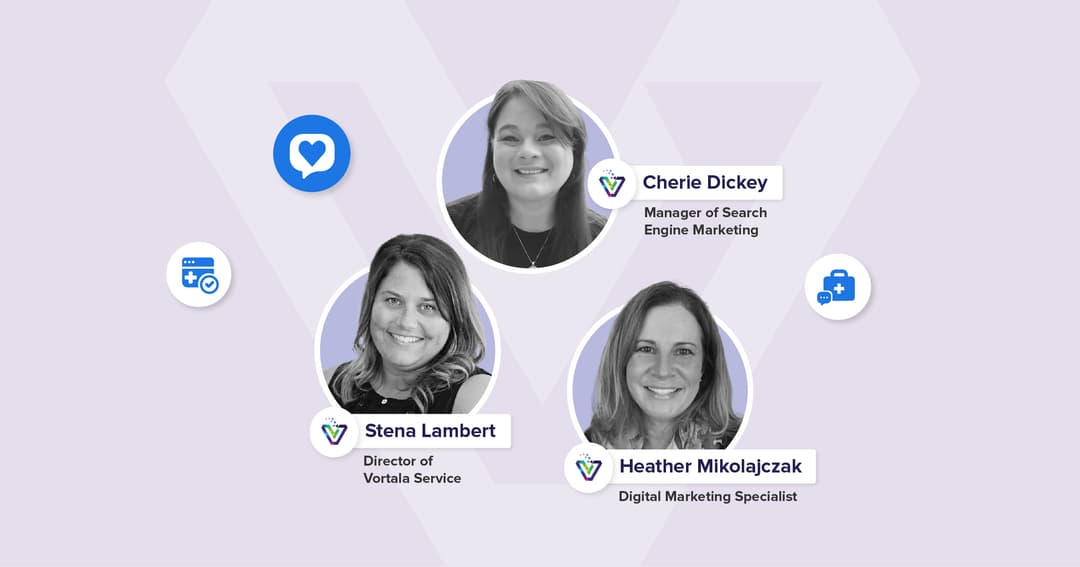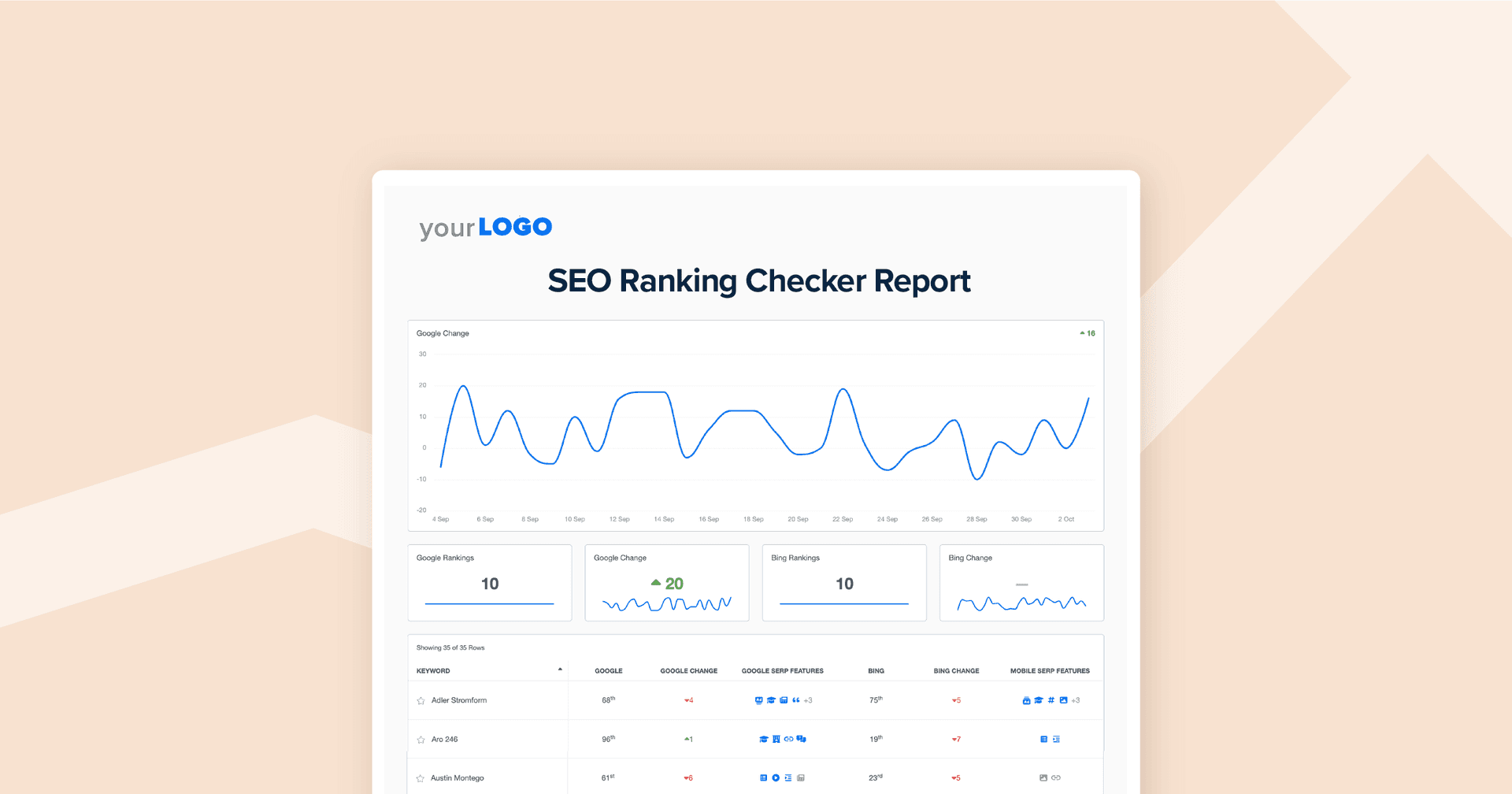Table of Contents
Table of Contents
- Expanding TAM in the Healthcare Niche
- A Client-First Approach to Optimizing the Agency
- Accessing a Talent Pool From Around the World
- Understanding Local Healthcare Search Patterns
- Helping Local Healthcare Providers Succeed
- 5 Factors of Local Healthcare Marketing Success
- Scalable Digital Service Package Options
- Investing in People Is Investing in Your Agency’s Growth
7,000+ agencies have ditched manual reports. You can too.
Free 14-Day TrialVortala has been delivering digital marketing solutions to the healthcare industry for almost 20 years, and currently manages over 2,500 websites within the healthcare niche. If that's not enough to make you sit up and take notice, how they’ve managed to grow their business over two decades and weather the changes of a digital world is also a big part of what sets them apart.
Stephen Anson and William Esteb knew they could help healthcare practitioners attract and retain more patients through digital advertising and created Vortala in 2005. It was evident from the beginning that the two co-founders would focus on an industry they knew best. They both had connections to chiropractors in their lives and attended many conferences and speaking events over the years where they began building business partnerships.
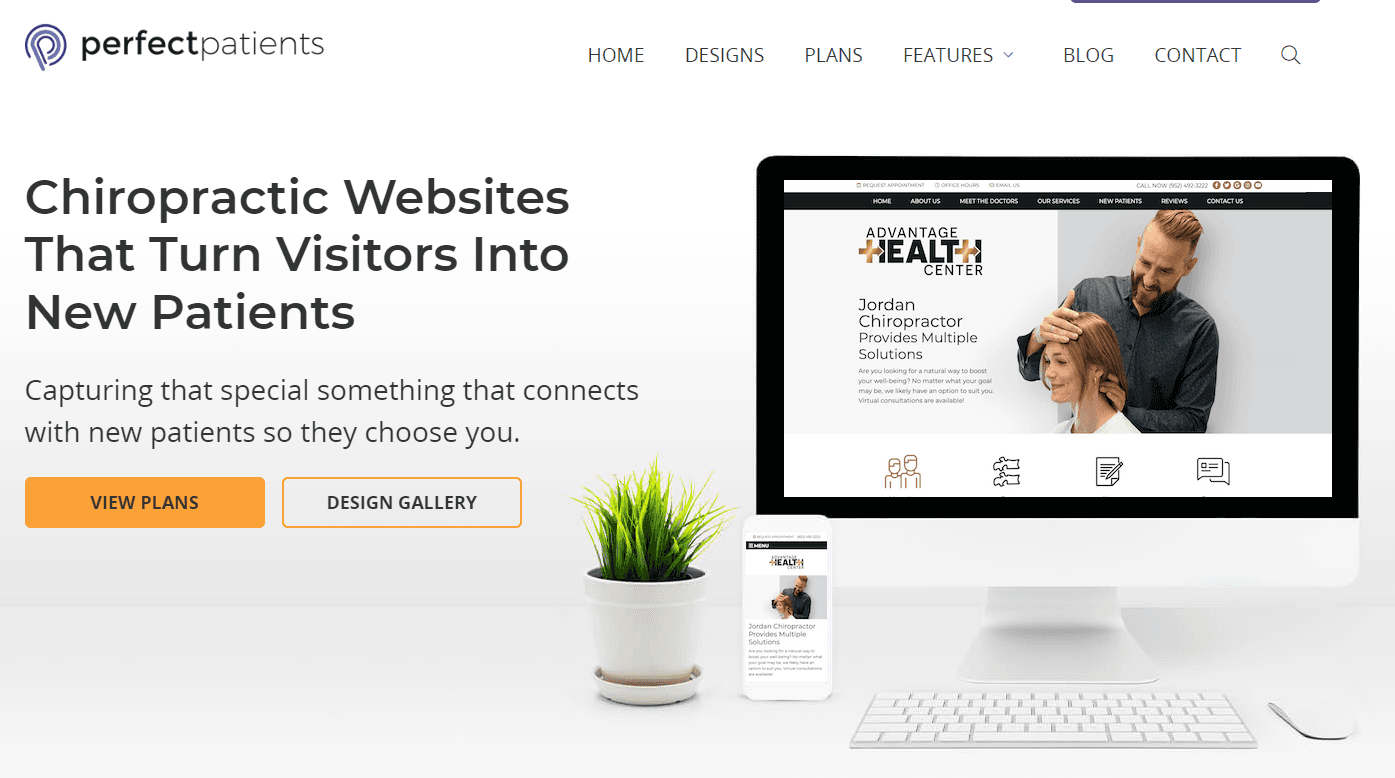
PerfectPatients - A division of Vortala dedicated to chiropractors
But sticking to one industry could only take them so far.
After accomplishing their goals over the next nine years, they realized that to grow their agency, they also needed to grow their offering.
Although the backbone of their agency was within the chiropractic vertical, when the team wanted to sink their teeth into new opportunities, they decided that the dental industry was the next logical step. “Expanding our services to the dental market just made the most sense,” says Stena Lambert, Director of Vortala Service. “We felt well-equipped to deliver results and test the waters of a different vertical.”
Expanding TAM in the Healthcare Niche
For the first nine years, the chiropractor niche was the exclusive focus of their agency, but to continue growing, they knew they needed to expand their total addressable market (TAM).
So, in 2014, Vortala created its first dental marketing site–Smile Marketing, a division of Vortala. Whether they were building a website from scratch or creating a paid ads strategy, they always focused on delivering holistic strategies to their clients.
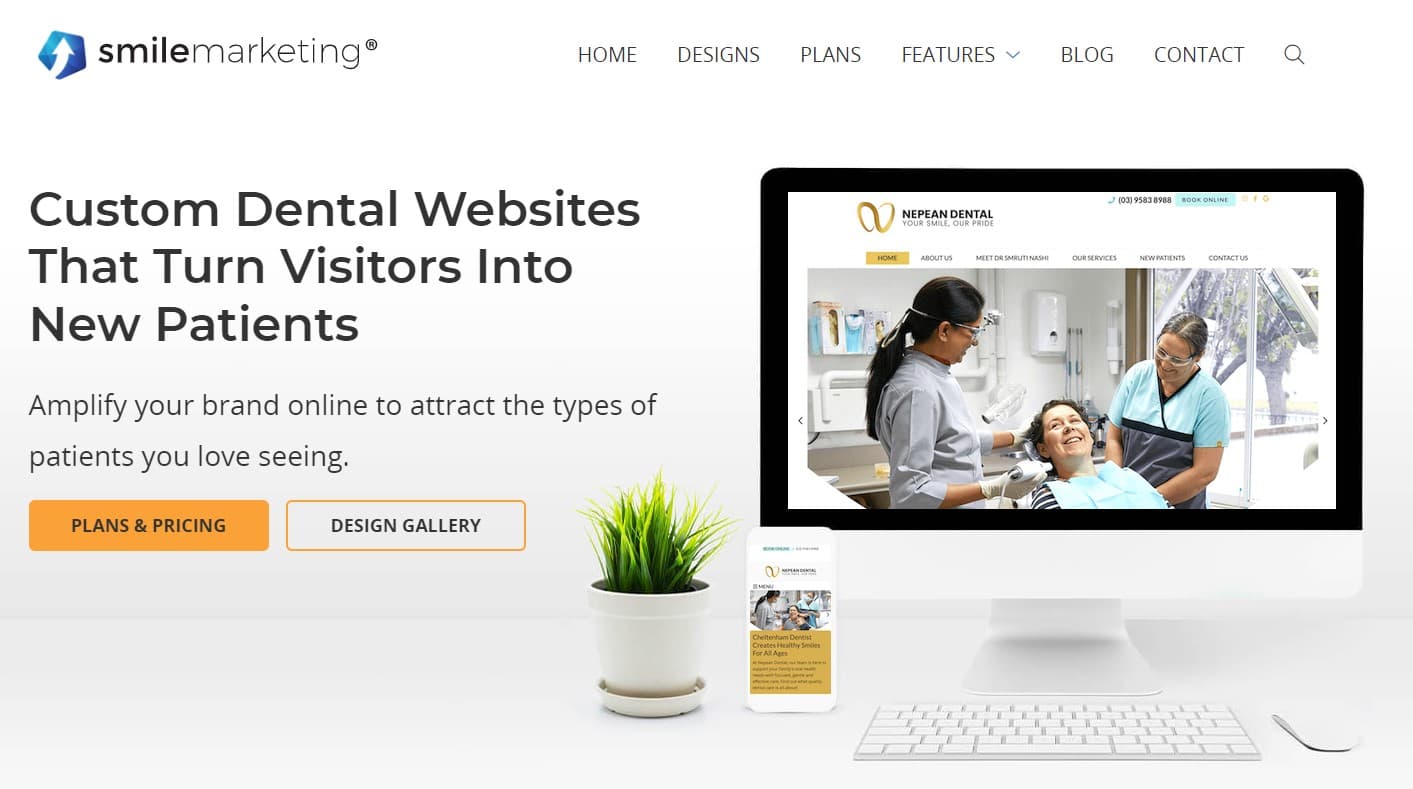
Smile Marketing - A division of Vortala dedicated to dentists
They found that, like with chiropractors, “SEO for dentists is constantly evolving, and things like the location of your practice, nearby competitors, what your niche service is, and even your own reputation as a doctor play important factors in how (and where) you turn up in a Google search result,” says Cherie Dickey, Manager, Search Engine Marketing. The client’s website “needs to build trust with potential patients and position you as an authority in your field.”
Because they had experience building that personal level of trust within one healthcare vertical, they were confident their chiropractic digital marketing skills and expertise would translate into the dental advertising niche.
When they added dental clients to their roster, the search terms and nuances had changed, but the fundamentals of building trust between healthcare providers and their potential patients remained consistent.
“It’s definitely a balance to tend to the needs of our staff and our clients at the same time,” says Lambert. “We feel like it's really been a key to our success to provide value to our clients and then nurture the company culture around delivering that value.”
When a client approaches Vortala for marketing help, the entire team starts with diligent research. After providing an in-depth SEO analysis, the sales team recommends what package would best suit their doctor’s overall practice goals (gaining more patients, brand awareness, etc.). Vortala has also recently tested out an exclusivity package option that has been met with great interest. The Ultimate Plan offers call tracking, and similar hands-on “exclusive” services that Vortala doesn’t offer to any other client within a specific radius.
A Client-First Approach to Optimizing the Agency
Going from a small to a medium-sized agency with over 70 employees certainly comes with its challenges.
Lambert, who recently celebrated her 12-year anniversary with Vortala, recalls going to her first Vortala company conference in Las Vegas in 2011. She attended with twelve or so other colleagues and they were all able to meet in single a hotel room suite. That would no longer be the case today.
Transitioning from a small to medium-sized business definitely comes with a lot of growing pains, but we've remained really flexible when it comes to meeting the needs of our existing clients and also of our prospective new clients. - Stena Lambert
Over the years, Vortala has never been afraid to take on a full company restructure in order to improve internal processes. While shaking up their organization chart a few times, they have always remained focused on getting results for their clients, despite having some growing pains.
“You have to be intentional about the actions you’re taking to move the company forward,” says Lambert, adding, “it’s important to make the necessary investments in things like technology in order to prioritize long-term goals."
As their agency grew, another “roadblock” they faced was upgrading their website platform in order to keep delivering value while hosting more and more client websites. They needed a solution that was not only going to be stable but also offer scalability as they attained more clients.
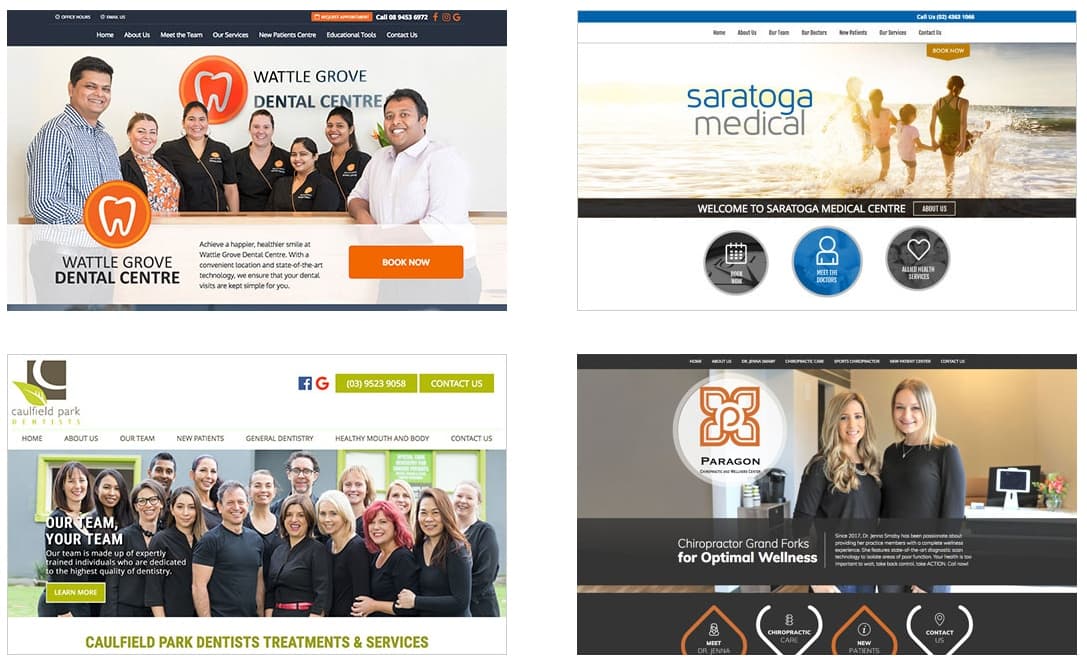
“When we’re talking about overcoming roadblocks,” says Lambert, “whether it’s investing in our team or the technology we use, we always stay hyper-focused on providing value to our clients and nurture the company culture around delivering that value.”
Accessing a Talent Pool From Around the World
There are many pros and cons to managing a remote agency, as we’re all aware of from recent economic struggles. But for Vortala, the pros have always outweighed the cons.
Over half of their team works remotely with employees spanning across South Africa, Romania, Canada, Malaysia, Phillippeans, India, New Zealand, and Mexico and has done so since long before the pandemic.
Vortala co-founder Esteb is based in the US, and Anson is in Australia. The two of them understood the benefits of collaborating remotely during a time when remote work wasn’t as common.

Image: Vortala Co-creators Stephen Anson and William Esteb in San Diego
After Ansen suggested expanding Vortala’s recruitment searches into South Africa, the agency gained some talented staff.
“There’s a lot of talent over there without a whole lot of opportunity,” Cherie Dickey explains. “Especially within my SEO team, there’s so much interest and knowledge. We’re happy to provide that opportunity and it’s been mutually beneficial.”
But as Vortala managers know, what benefit would it be to have a super talented team of employees if they felt they couldn’t share their ideas? Dickey always ensures every team member knows their contribution is welcomed and highly valued.
“I look at SEO as a science. And science only progresses with collaboration and experimentation,” explains Dickey. “Every good idea started as a hypothesis, so I encourage that on my team. I want them to feel safe coming to me, not just with issues but with ideas, and I think that's important.”
She also recognizes that it may not always be easy to share new ideas–remote or otherwise.
“If you shut down the freedom to express yourself, especially when you're kind of introverted, and you have lots of ideas, it can be discouraging not to feel heard. So, I work hard to make sure that everybody on my team feels heard and valued.”
Dickey meets with her team every two weeks to encourage ideas and collaboration. They all get in the same room, so to speak, and brainstorm ideas together on how to improve current processes, new SEO practices, how to improve their strategies, and more.
Understanding Local Healthcare Search Patterns
Despite their international distribution, Cherie Dickey’s SEO team specializes in local SEO. It’s what they know and what they do best. Their local SEO expertise allows them to consistently deliver results for their healthcare clients.
But having an international SEO team specializing in Local SEO does not come without its challenges, including cultural differences in how people search. Another challenge is ensuring that the team understands the correct spelling and local vernacular–color vs. colour, for example.
“When someone types something into that search bar, there’s usually an intent behind it,” explains Dickey. “When you’re looking for a doctor near you, you want the best doctor near you.”
When performing their SEO services for their healthcare clients, they try to get into the minds of the patients doing the searching. That way, they can deliver their clients’ expertise and give valuable advice or answers that their patients are looking for.
It’s crucial to understand the mindset of not only what our doctors need, but also their patients. - Cherie Dickey
But every practice is a bit different, so it’s also important to do your local research to continue providing those relevant results in the SERPs.
“Doctors aren’t looking for patients across the country,” Dickey laughs. “So doing your research in their local communities is huge. It’s like understanding a ‘micro culture’ almost, and being able to learn the local vernacular, and how their patients think and speak when looking for a doctor.”
When they take on a new client (of any budget size), Dickey’s team starts by looking at the “SEO foundation.” They don’t use any plugins or apps that could cut corners.
Helping Local Healthcare Providers Succeed
As Dickey explained in a recent article on dental SEO, “the days of keyword-filled content are long gone.” Whether you’re in the healthcare industry or not, your website needs to have dedicated SEO strategies in order to succeed in the SERPs.
Having guidelines in place help deal with the international distribution of their workforce.
“We have a dedicated team of people that do a manual, very thorough review of their existing SEO foundation and then we’ll make recommendations on a case-by-case basis depending on things they need to ‘clean up,’” says Dickey.
Once they review the initial recommendations, they can offer services like optimizing the website for search engines and running Google ads moving forward.
“Sometimes our clients are in a highly competitive area, and there are four results before they even get to the map, and they’re all ads. So even if they’re ranking number one, they’re still eight or nine on the page and they’re not getting the click-through they want,” Dickey shares.
When her SEO team runs into a situation like this, they recommend to their clients that they should run paid ads as a part of a larger strategy to overcome the local competition.
At the end of the day, Dickey says everyone on their team just wants their doctors to be successful. And they won’t hesitate to do what they need to, even if it includes in-depth local research, to partner with Vortala.
Read More: The Benefits of SEO: What To Tell Clients About Their ROI and Beyond
5 Factors of Local Healthcare Marketing Success
Part of their success comes back to the development of repeatable processes. When Vortala works with any client, they always refer back to what they call the five factors of digital marketing success:
High converting websites
Traffic (which can include both SEO and paid ads)
Email marketing
Reviews
Social Media
By implementing these five factors for their clients, they deliver a holistic approach to help grow their clients’ practice.
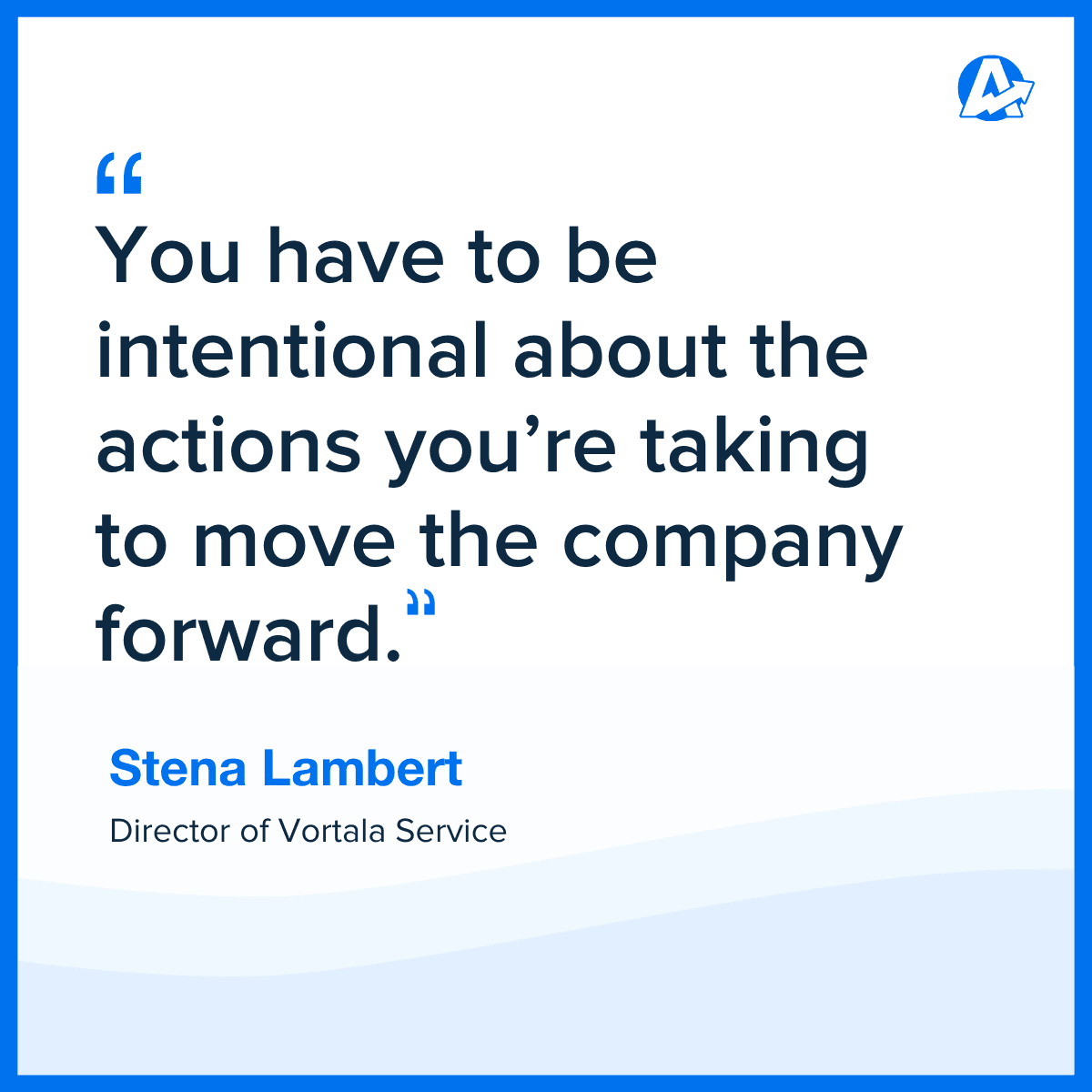
“These are the different areas of digital marketing that we like to focus on both internally and through conversations with our clients,” Lambert shares. “We identify what we can work on proactively and what might help them gain traction.”
For example, when working with a recent chiropractic client, they started by building a high-converting website. They pulled out all the stops including:
A specific website design with their client’s patients in mind
Professional custom photography
Relevant pages that encourage visitors to convert (virtual events, new patient forms, request an appointment, etc.)
Connected social platforms with patient success stories
Google reviews that are also displayed on the site
Vortala’s Senior Digital Marketing Specialist, Heather Mikolajczak, says this chiropractic client from Chicago, Hansen Family Chiropractic, is a great example of how they cracked the code by creating a complete strategy to get their client the results they were looking for.
“When a patient does their research, they’ll know right away what this practice is all about. You feel like you almost know them,” says Mikolajczak.
She is on the client-facing end of Vortala and communicates between different internal teams to develop strategies that will work most effectively for their clients.
It’s really fulfilling to see a client go from putting up a website, not having rankings or traffic, and then we work together with them and watch their practice grow. - Heather Mikolajczak
Scalable Digital Service Package Options
Agency pricing models are a familiar struggle, especially with growing agencies. Vortala has seen success with a package model when it comes to its digital service offerings. Depending on each client’s specific needs, their sales team recommends choosing between Essential, Premium, or Enterprise.
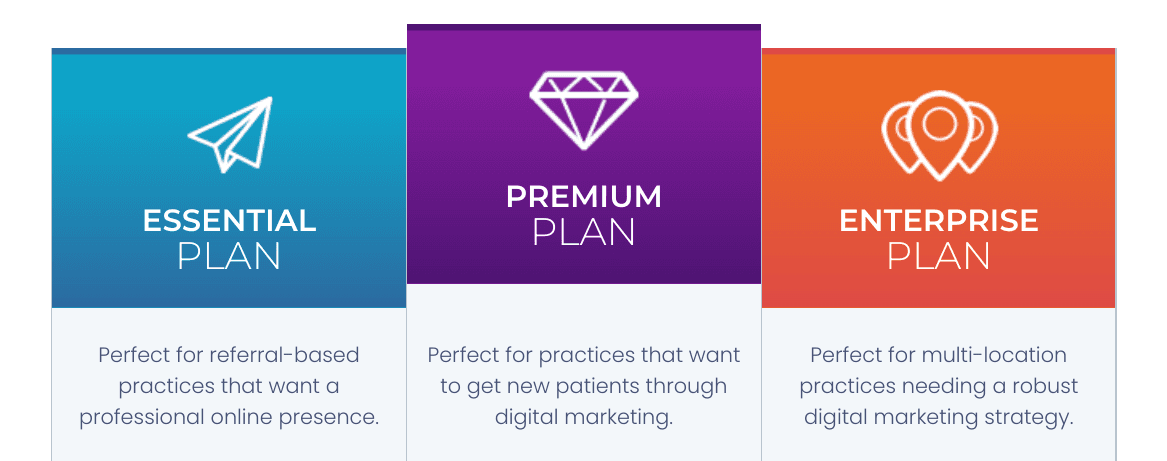
The tiered packages were created to meet the needs of individual clients (new or existing) and what their patient goals might be. It also streamlines and simplifies the sales and fulfillment processes, compared to a custom quote for every client.
“Our internal teams all come together to determine the best recommendation for a particular client and how they can stand out among their competitors,” Lambert shares.
As the digital marketing landscape changed over the years, specifically SEO best practices, Vortala needed a new plan to help them scale the agency for the amount of time and effort they were putting in.
“The Ultimate Plan was created because it wasn’t scalable to give our clients everything included under one package. So we hired some new team members on the SEO team to be able to put that extra time and extra love into some clients that can be time intensive,” Dickey says.
They also recently added call tracking to their Ultimate Plan arsenal.
“Sometimes a client is ranking well and they’re saying ‘Hey, we’re not getting any new patients.’ So now we’re able to see why they’re not converting. What’s happening in the phone calls? That’s what the Ultimate Plan was created for. It’s that extra level of service,” Dickey says.
They’re able to analyze things like website visitors converting via phone calls, for example. They can also determine any gaps in the client’s call management that could hamper their conversion rates–and take necessary actions to correct those.
Vortala has seen such great success with this new plan that they even had some onboarding clients sign up for it immediately because they wanted that extra level of support on their digital marketing strategies. Lambert admits that some of the demand could have been because of exclusivity.
“Some clients just want the best of the best of our offerings,” Lambert laughs. “But the first few clients we sold the Ultimate Plan to, wanted to literally pay just for the exclusivity because no one in their area would be getting the same level of service as they would.”
On the other hand, if they have a client that has really ambitious goals without the budget to support them, Vortala always has a solution.
“The sales team is great at communicating what they can set up within their budget with the intent of upgrading in six to twelve months, for example,” says Lambert.
But Dickey makes it clear that Vortala doesn’t upsell their services just for the sake of upselling clients.
“We really are focused on what our clients’ needs are, and sometimes that’s in your budget, but if not, there are alternate solutions that we can work around that with,” Dickey shares.
Investing in People Is Investing in Your Agency’s Growth
Whether the team at Vortala is trying to see from the perspective of their client’s patients or trying to see from their teammates' point of view, one thing has always been clear: Investing in people will always translate into a successful, growing business.
If we want to be successful, we have to grow as people and grow as a company if we want to also help our clients’ practices grow. It's all connected. Our clients’ success translates to us and vice versa. - Stena Lambert
In order to maintain steady company growth, all of the departments at Vortala openly communicate. In fact, the executive directors meet every month to discuss company culture and plan workshops and other events for the agency to attend.
“We’ve studied Arbinger, who developed the concept about the ‘outward mindset.’ It helps us communicate openly and foster a positive culture and mindset here. We really keep that at the forefront of everything that we do,” Lambert smiles.
Image: Vortala executive members at a recent meeting in San Diego.
To summarize how Vortala has seen success with their healthcare clients, they’ve implemented these strategies:
Combining chiropractic clients with dental clients to branch out within their healthcare niche
Tackling growing pains by investing in technology and team members to continue delivering results for clients
Not limiting their recruiting efforts to a certain geographic area
Focusing heavily on local SEO services by thinking like their client’s audience
Creating the Five Factors of Digital Marketing Success to be the guiding light for all of their clients
Having scalable digital service package options that serve different sizes of clients
Investing in their employees to translate into successful agency growth
As for the future, the team at Vortala is looking forward to enhancing their skill sets and growing their international teams even larger. “Working on the growth of our people will always translate into the growth of our company and the growth of our clients,” explains Lambert.
Vortala is also working on refining its new Ultimate Plan that continues to drive success for its local healthcare clients.
Simplify your workflow and showcase results effortlessly with a healthcare marketing report template—tailored for healthcare campaigns. Try AgencyAnalytics free for 14 days!

Written by
Richelle Peace is a writer with a degree in Journalism who focuses on web content, blog posts, and social media. She enjoys learning about different topics and sharing that knowledge with others. When she isn’t writing, Richelle spends time teaching yoga, where she combines mindfulness, movement, and her passion for wellness.
Read more posts by Richelle PeaceSee how 7,000+ marketing agencies help clients win
Free 14-day trial. No credit card required.



